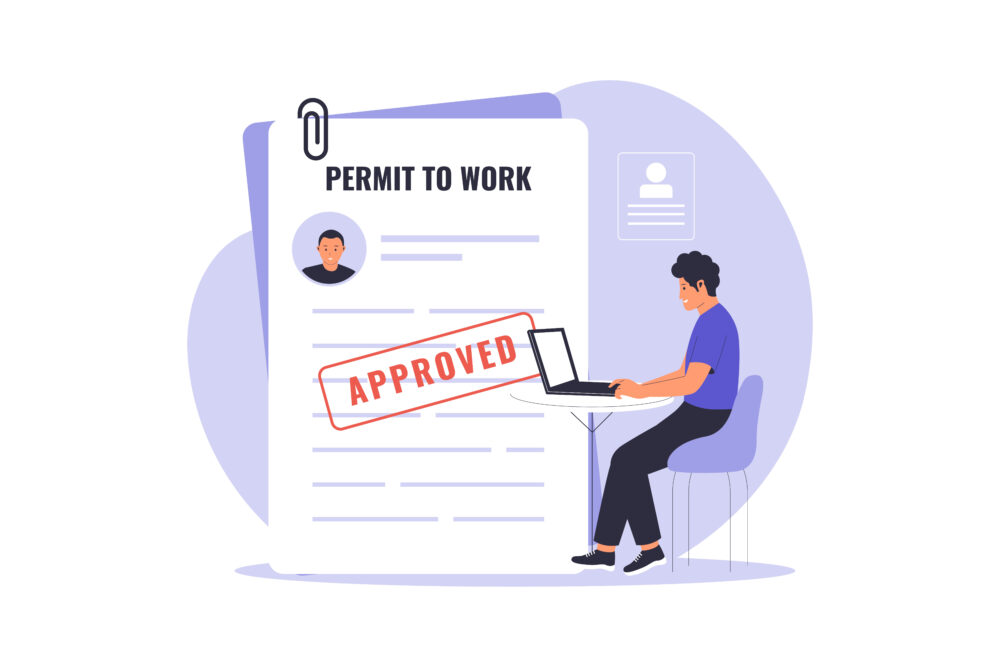Labor outsourcing activities first appeared in Vietnam in the 2000s, driven by a massive influx of foreign investment. Today, this business model has become increasingly popular in the modern economic context, meeting the flexible labor needs of enterprises. For businesses using labor outsourcing services, it offers cost savings and allows them to focus on core activities, while employees gain access to various working environments.
According to labor laws, labor outsourcing is a conditional business sector, and enterprises can only engage in labor outsourcing if they meet the conditions set by the law. In practice, in many industries, primarily related to the Service, the service provider will appoint one or more of their employees to provide services to the service user as per their request. There is a risk that the service provider may be deemed to provide labor outsourcing to the service user, as the service provider’s personnel are under the management of the service user. Meanwhile, the service provider may not meet the conditions for labor outsourcing, or the service provided may not fall under the labor outsourcing sector as stipulated by law. This situation affects the rights and interests of the service provider, the service user, and the employees, and the parties may be subject to administrative fines for violating labor outsourcing regulations.
This article aims to clarify what “being under the management of another employer” means – a crucial factor in determining whether a labor outsourcing relationship exists under the law.
1. Regulations on Labor Outsourcing
a. Definition of labor outsourcing:
Pursuant to Article 52.1 of the Labor Code 2019, labor outsourcing is when an employee signs a labor agreement with an employer that is a labor outsourcing enterprise, and then the employee is transferred to work and under the management of another employer while still maintaining the labor relationship with the original employer with whom the labor agreement was signed.
b. Conditions for Labor Leasing Enterprises:
Enterprises on labor outsourcing shall meet the following conditions: (i) be legally established according to the law of Vietnam; (ii) have a labor outsourcing operation license; and (iii) only perform labor outsourcing in certain professions, specifically:
- Interpreting/translation/stenography;
- Secretary/administrative assistant;
- Receptionist;
- Tour guide;
- Sales support;
- Project support;
- System programming for production machinery;
- Production, installation of television and telecommunications equipment;
- Operation/inspection/repair of construction machinery, production electrical systems;
- Cleaning of buildings and factories;
- Document editing;
- Bodyguard/security;
- Telemarketing/customer care;
- Handling financial and tax issues;
- Car repair/operation inspection;
- Scanning, industrial technical drawing/interior decoration;
- Driving;
- Management, operation, maintenance, and service on ships;
- Management, supervision, operation, repair, maintenance, and service on oil rigs;
- Piloting, serving on aircraft/maintenance, aircraft and equipment repair/flight schedule, flight operations/flight supervision.
2. What is considered “under the management of another employer”?
According to Article 6.1.a of the Labor Code 2019, labor management rights are the basic rights of the employer. Although the applicable laws do not explicitly guide what is meant by “labor management” by the employer, it can be understood that the employer has the right to develop work plans, assign tasks, organize work processes, and ensure that employees comply with their arrangements and assignments. Management can be manifested in various forms:
(i) Assigning specific job positions to employees suitable to the employer’s production and business needs and requiring employees to perform tasks based on the methods and procedures specified/instructed by the employer.
(ii) Employees have to work in accordance with the working hours stipulated by the employer in the internal labor regulations and can only change working hours or take leave with the employer’s consent, managing employees’ work within the working hours.
(iii) Requiring employees to behave and act as per the employer’s culture, rules, and standards: dress code, communication with superiors, colleagues, etc.
(iv) Employees have to take personal responsibility for their actions, words, and work results, and the employer has the right to monitor, and evaluate work performance, provide direct feedback on work results, and/or require employees to make corrections to meet the employer’s expectations.
Disclaimers:
This article is for general information purposes only and is not intended to provide any legal advice for any particular case. The legal provisions referenced in the content are in effect at the time of publication but may have expired at the time you read the content. We therefore advise that you always consult a professional consultant before applying any content.
For issues related to the content or intellectual property rights of the article, please email cs@apolatlegal.vn.
Apolat Legal is a law firm in Vietnam with experience and capacity to provide consulting services related to Employment and contact our team of lawyers in Vietnam via email info@apolatlegal.com.





































